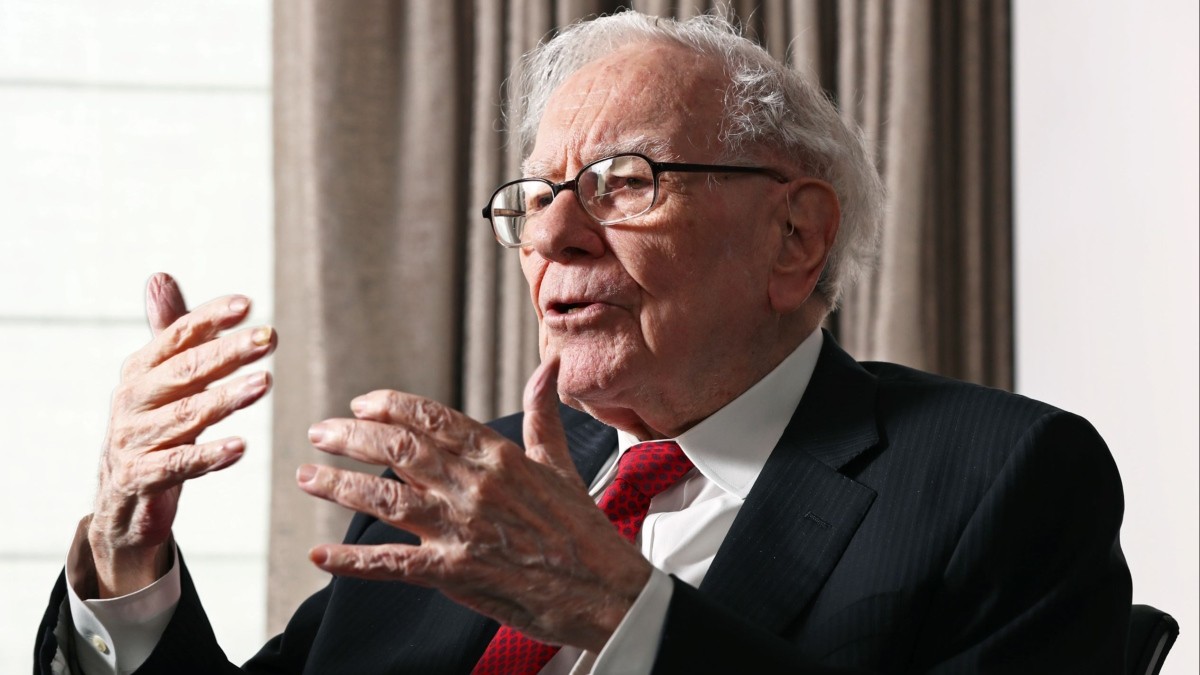Warren Buffett to divest from Bank of America

Warren Buffett’s Berkshire Hathaway has recently been reducing its long-held investment in Bank of America. You may want to consider making a purchase. In the past month, Bank of America has shown weaker performance compared to the KBW Nasdaq Bank Index. The bank’s stock has declined by approximately 4%, while the index has experienced a smaller drop of around 1.5%. Considering Buffett’s impressive track record, it would be difficult to criticize someone who is inclined to follow his lead on a trade. However, Berkshire’s intentions are unclear. As of mid-August, it maintained approximately 12% of Bank of America’s shares outstanding, according to Dow Jones Market Data. Furthermore, it has already generated billions of dollars in profits from the investment.
What benefits Berkshire over a period of more than ten years may not be applicable to other investors in the coming quarters. Upon closer examination, it appears that recent events may actually strengthen the argument for Bank of America as one of the more promising options among lenders in the near future. Bank of America appears to be well-prepared for any potential recession fears that have been unsettling the market recently. In the latest stress test conducted by the Federal Reserve to assess the impact of a severe economic downturn, BofA’s loan losses amounted to 5.5% of average balances. This figure is notably lower than the average of 7.1% observed across the 31 large banks that were examined.
It is highly unlikely that we will experience a severe economic downturn at this time. It is highly likely that the Fed is ready to start reducing interest rates. That will certainly impact the interest earnings of many banks. Loans tied to benchmark rates are generating less interest income, while deposit pricing is taking longer to adapt. Bank of America is no different. If the Federal Reserve were to implement three quarter-point reductions before the year concludes, the bank anticipates a decrease in its quarterly net interest income of approximately $225 million in the fourth quarter compared to the second quarter.
On the other hand, Bank of America does have some significant mitigating factors. Firstly, the extensive bond portfolio that has been a source of concern for the bank among certain investors since last year becomes a potential advantage as rates are reduced. In addition to the potential increase in value of those older, low-yielding bonds, the significant number of securities maturing each quarter will continue to contribute to a substantial boost in net interest income next year as that money is reinvested at current yields. In addition to the ongoing development of fixed-rate loans like auto loans and home mortgages, the bank’s projections indicate that this will counterbalance the effects of rate cuts by increasing net interest income by approximately $300 million in the fourth quarter compared to the second.
In addition to that, there are a few more factors that contribute to an increase in net interest income. As per the bank’s statement, the net interest income is expected to receive a boost in the second half of next year due to the expiration of cash-flow swap hedges that were put in place to safeguard against declining interest rates. According to analyst projections compiled by Visible Alpha, Bank of America is expected to experience a 5% growth in net interest income in 2025. In comparison, other megabank peers such as Citigroup, JPMorgan Chase, and Wells Fargo are projected to see smaller increases or declines.
Given the bank’s acknowledgement of these positive factors, it’s possible that the market has already factored in some of this expected growth. However, given the uncertainty surrounding interest rates, there is a possibility of BofA’s performance improving if the Fed decides to cut rates more aggressively than anticipated. In addition, there is the overall uncertainty surrounding the potential outcomes of factors like loan growth and Wall Street deal making. BofA’s investment-banking revenue currently plays a larger role in its overall revenue compared to Citigroup and JPMorgan. If the expected decrease in interest rates stimulates increased corporate activity, Bank of America is well-positioned to reap significant benefits.
Considering the valuation, there appears to be potential for Bank of America to exceed expectations. According to FactSet data, Bank of America is now trading at a lower price compared to the earnings projected for 2025. In contrast, S&P 500 banks overall are trading at a higher multiple. Investing in a bank stock, particularly during an election year, requires a certain level of courage. There are numerous unpredictable factors in the world of credit, trading, and politics that can disrupt investors’ plans. However, Berkshire’s decision to reduce its holdings could present a chance to acquire a potentially exceptional franchise next year at a favorable price.









